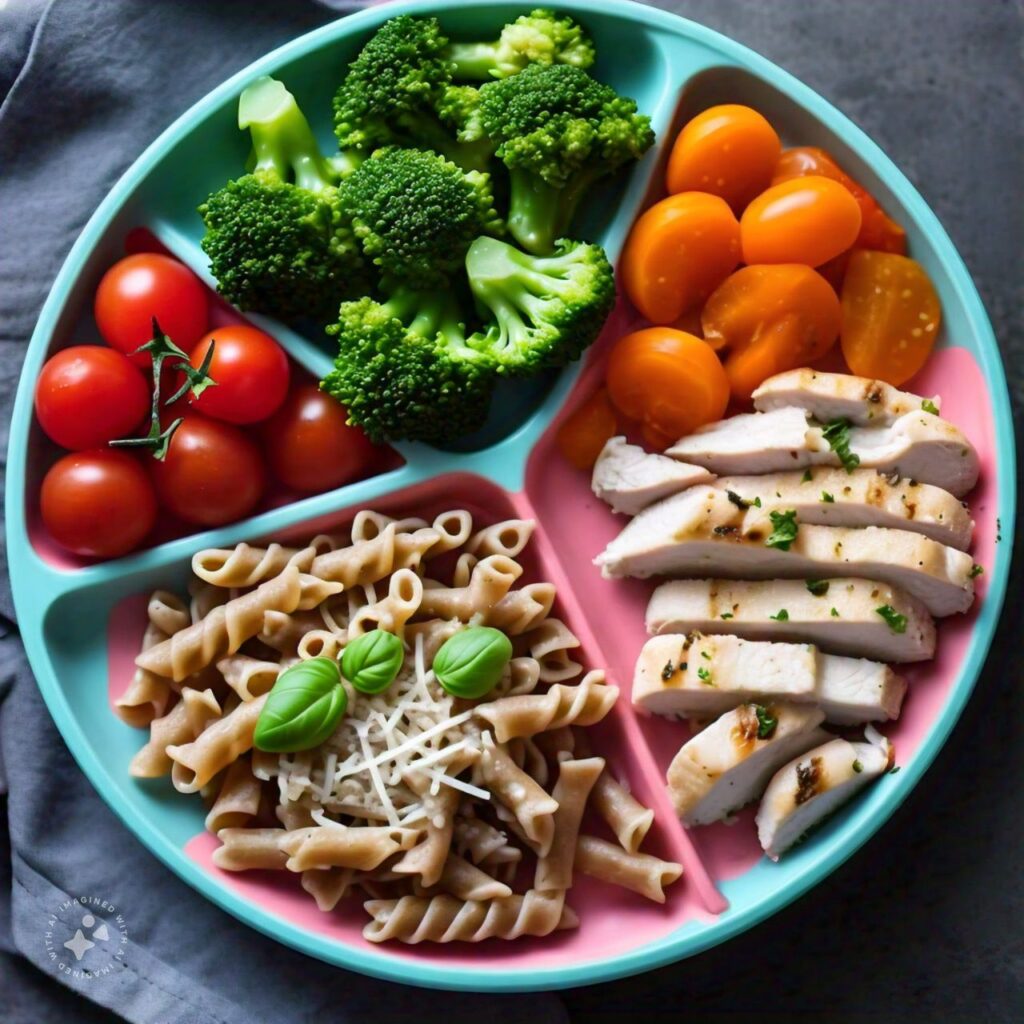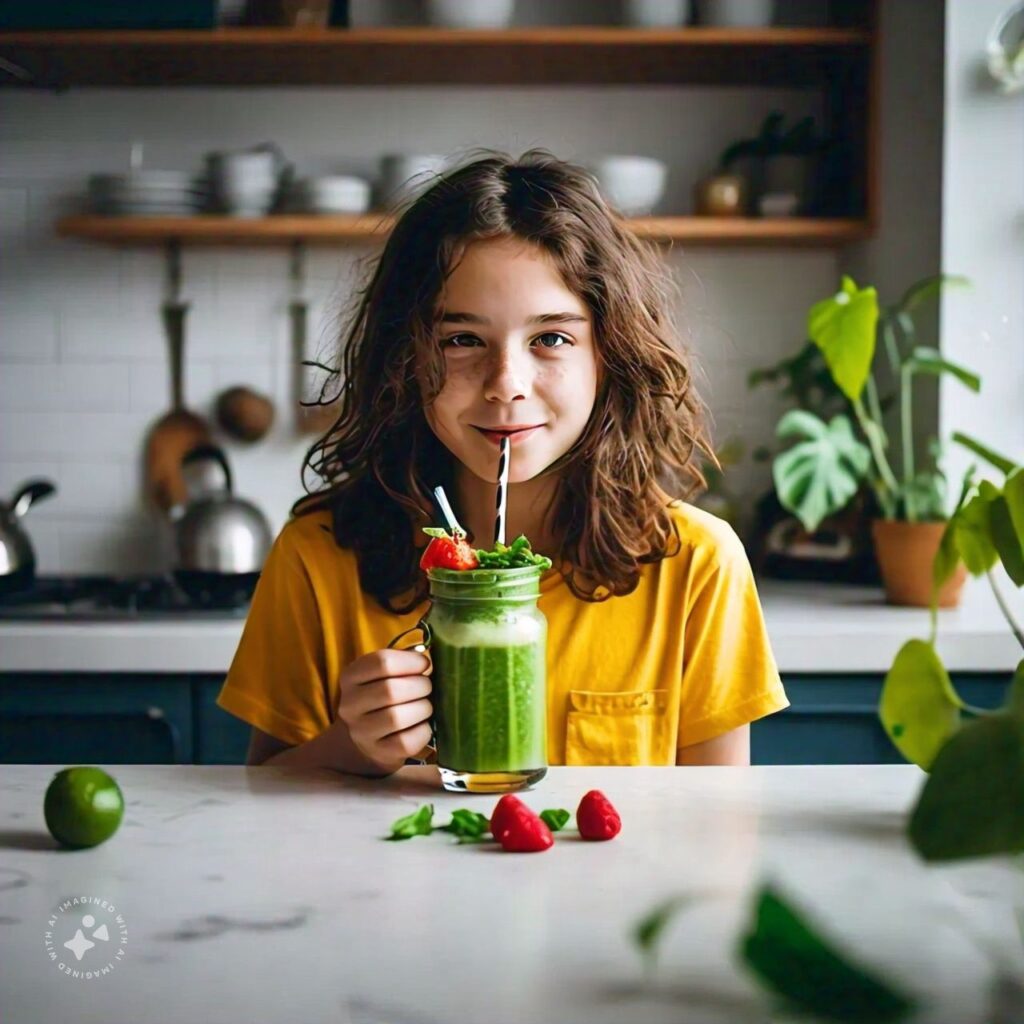
For children up to 3 years, a balanced diet rich in whole foods supports mental health and overall development. Here are some key recommendations:
Infants (0-12 months)
1. Breast milk or formula as primary nutrition
2. Introduction to solid foods at 6 months: iron-rich pureed meats, fish, and poultry, followed by fruits, vegetables, whole grains, and legumes
3. Omega-3 fatty acids from fish oil or DHA supplements (consult pediatrician)

Toddlers (1-3 years)
1. Whole grains: brown rice, quinoa, whole-wheat bread
2. Protein sources: lean meats, fish, eggs, beans, lentils
3. Variety of colorful fruits and vegetables
4. Healthy fats: avocado, nuts, seeds
5. Dairy: whole milk, cheese, yogurt
6. Limit sugary drinks and processed snacks

Mental Health Boosting Foods
1. Omega-3 rich foods: salmon, walnuts, chia seeds
2. Complex carbohydrates: whole grains, fruits, vegetables
3. Antioxidant-rich foods: berries, leafy greens
4. Probiotic-rich foods: yogurt, kefir, fermented vegetables
Beverages
1. Breast milk or formula (infants)
2. Water (toddlers)
3. Limit juice intake (max 4 oz/day)

Tips
1. Consult pediatrician before introducing new foods
2. Encourage self-feeding and exploration of textures
3. Model healthy eating habits
4. Avoid forcing food or using food as reward/punishment
5. Monitor for food allergies/intolerances
Mental Health Support
. Positive interactions and play
2. Emotional validation and labeling
3. Consistent routines and boundaries
4. Screen time limits (American Academy of Pediatrics recommends no screen time for children under 2)Remember, every child is unique. Consult your pediatrician for personalized dietary advice.
For children up to 3 years, avoid or limit the following foods, considered “junk” due to their negative impact on mental and physical health:
Infants (0-12 months)
- Sugary drinks
- Honey (risk of botulism)
- Raw or unpasteurized dairy, eggs, or juices
- Processed meats (e.g., hot dogs)
- Solid foods with added sugars or salt
Toddlers (1-3 years)
- Sugary drinks (juice, soda, sports drinks)
- Refined grains (white bread, sugary cereals)
- Processed snacks (chips, crackers)
- Fried foods
- High-sugar foods (candy, cookies)
- High-sodium foods
- Artificially flavored or colored foods
- Foods high in saturated/trans fats (processed meats, fried foods)

Specific Foods to Limit/Avoid
- Hot dogs
- Sugary breakfast cereals
- Fruit snacks
- Energy drinks
- Caffeine
- Raw or undercooked eggs, meat, fish
- Unpasteurized cheese, milk
Why Limit/Avoid These Foods?
- Increased risk of obesity, diabetes, allergies
- Negative impact on gut health and microbiome
- Link to behavioral issues, tantrums, attention deficits
- Reduced nutrient intake, leading to deficiencies
- Potential for choking hazards (e.g., hot dogs)

Healthy Alternatives
- Fresh fruits, vegetables
- Whole grains (brown rice, quinoa)
- Lean proteins (chicken, fish)
- Healthy fats (avocado, nuts)
- Low-fat dairy
Tips
- Read food labels
- Choose whole foods over processed
- Offer water instead of sugary drinks
- Model healthy eating habits
- Consult pediatrician for personalized guidance
Resource
American Academy of Pediatrics (AAP)
Academy of Nutrition and Dietetics
World Health Organization (WHO)
Health and wellbeing
Contents